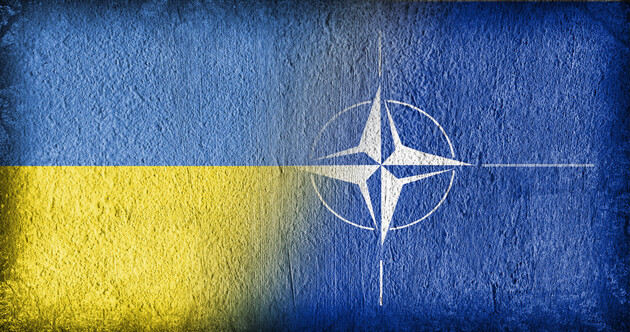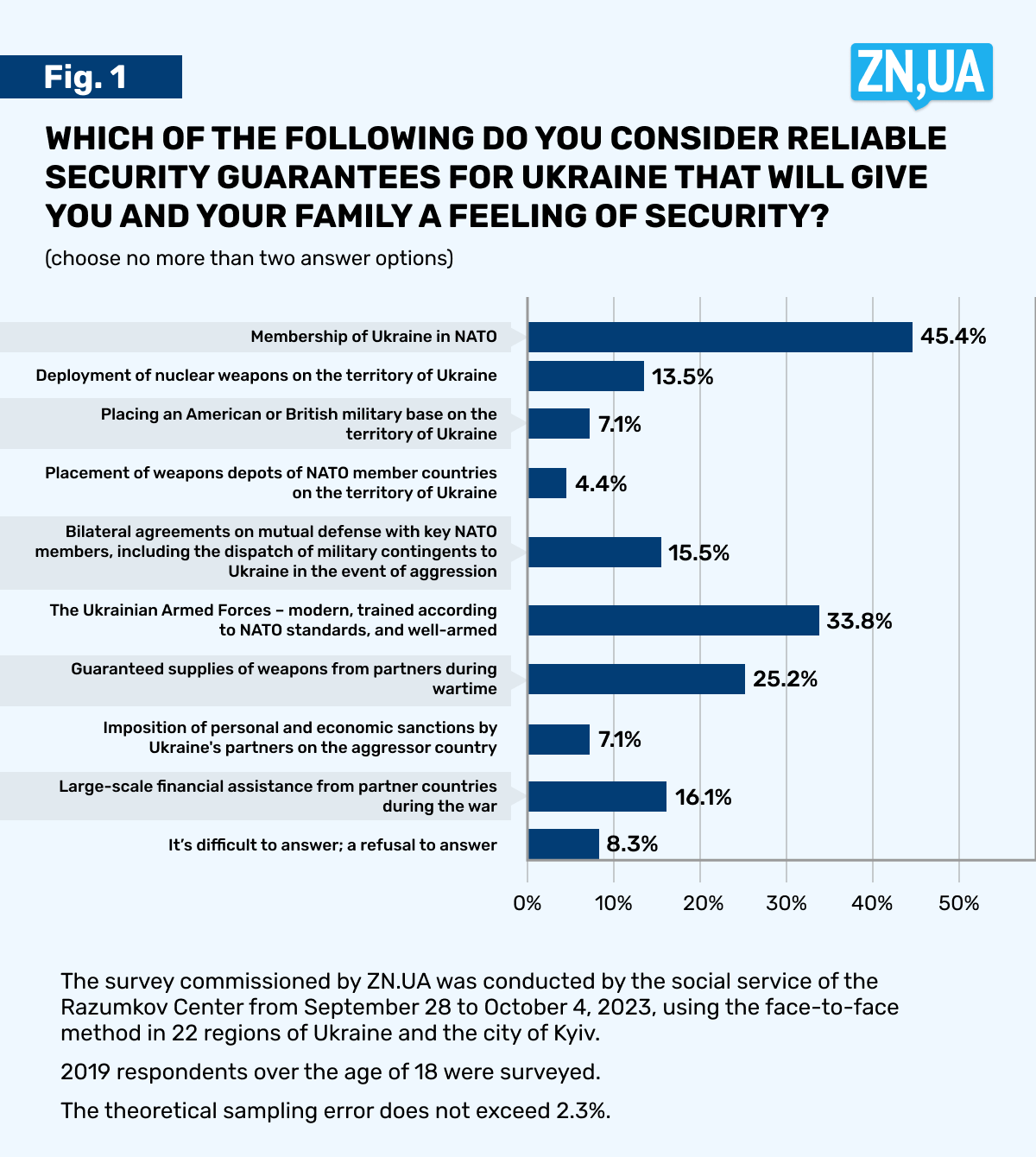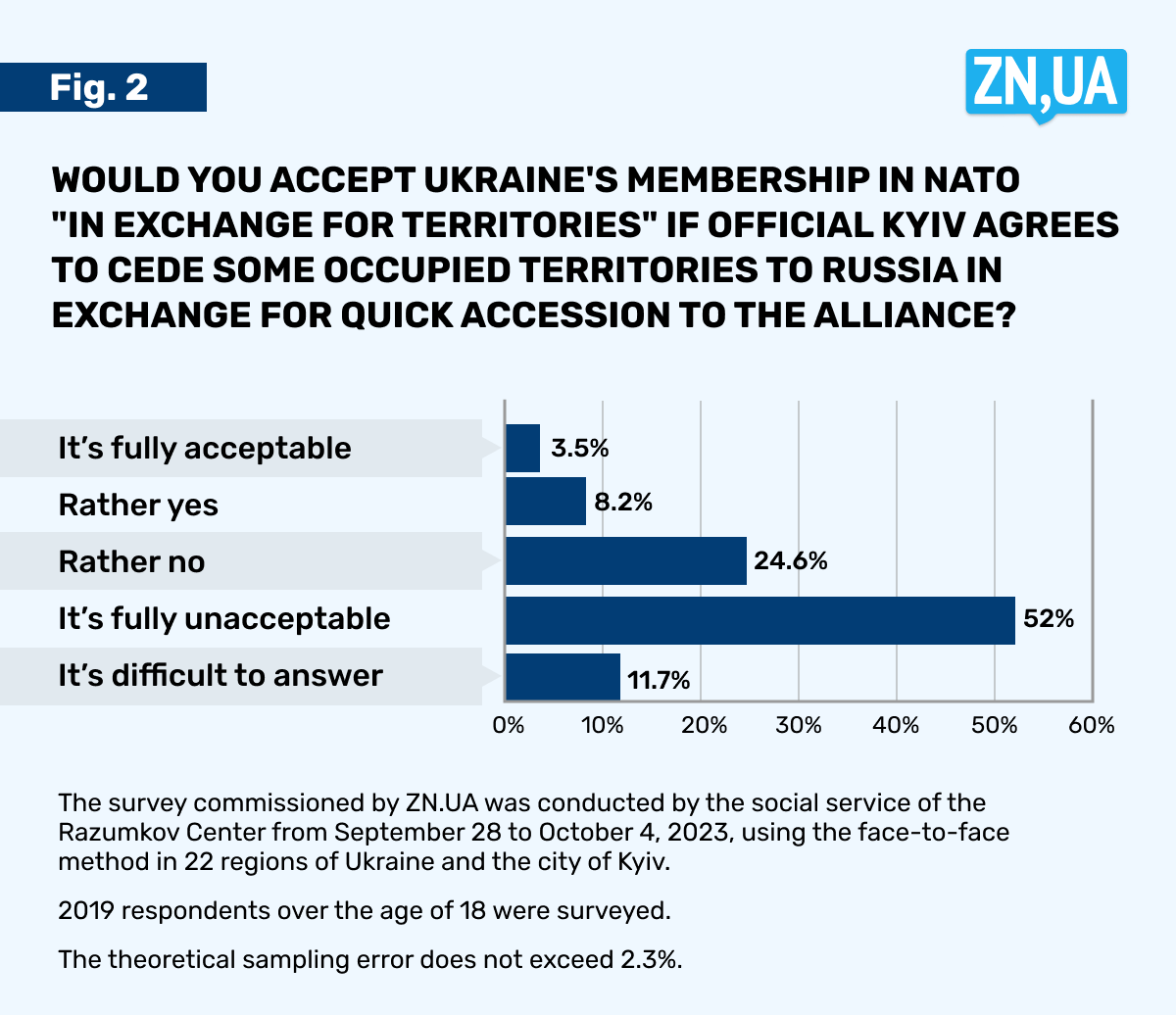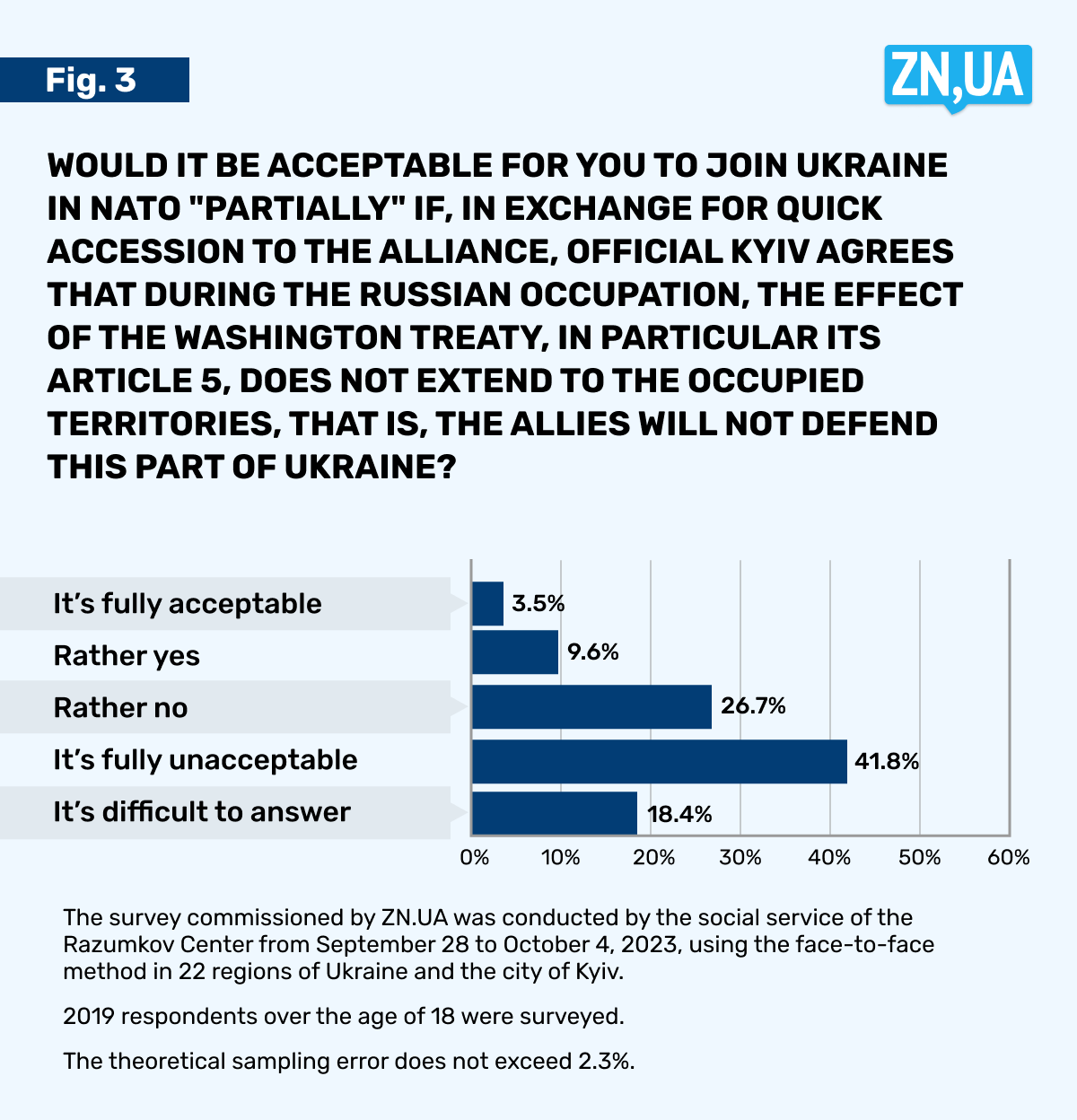Ukraine In NATO. When Will They Call Us And What Options Do We Have?
There are still eight or nine months before the Washington NATO summit begins. Nevertheless, today it is necessary to formulate its Ukrainian agenda. After all, the Alliance is an organization where decisions are made by consensus. And achieving it, including on the Ukrainian issue, requires time and effort. Otherwise, Kyiv faces a repeat of the failure of the Vilnius summit, when the Ukrainian authorities only a month and a half before it began to aggressively push the proposal to invite Ukraine to NATO in the Lithuanian capital.
Therefore, experts from the American Atlantic Council are already lobbying for the idea that our country should be invited to the Alliance at the summit in Washington. As can be seen from the comments of experts from this influential think-tank at the presentation of the memorandum to the US President, organized by the OpenUkraine Foundation, the Atlantic Council is well aware of the difficulties of achieving this goal. After all, the main opponents of Kyiv’s invitation to NATO at the 2024 summit are not Budapest, but Washington and Berlin.
However, in Kyiv itself they have not yet decided what goals need to be achieved at the anniversary meeting of the Alliance. As ZN.UA interlocutors assure us, the possible agenda of the summit in Washington will become a little clearer after the meeting on the Ukrainian “peace formula” in Malta on October 28–29.
In the time that has passed since the summit in Vilnius, Ukraine’s main goal – becoming a member of the Alliance – has not changed, since this is a guarantee that Russian aggression against our country will not be repeated in the future. This position of the Ukrainian authorities is also supported by Ukrainians, as evidenced by the results of a poll conducted by order of ZN.UA by the Razumkov Center from September 28 to October 4.
We asked our fellow citizens: “Which of the following do you consider reliable security guarantees for Ukraine that will give you and your family a feeling of security?” (Respondents could choose no more than two answer options.)
The most votes, as expected, were for by the country’s membership in NATO: this answer option was chosen by 45.4% of Ukrainians surveyed. However, for a third of respondents, such a talisman is the Ukrainian Armed Forces – modern, trained according to NATO standards, and well-armed.
And only then Ukrainians consider as a “shield” guaranteed supplies of weapons (25.2% of interviewees); large-scale financial assistance from partner countries during the war (16.1%); bilateral mutual defense agreements with key NATO members (15.5%); deployment of nuclear weapons in the country (13.5%); introduction of personal and economic sanctions against the aggressor country (7.1%); deployment of an American or British military base in Ukraine (7.1%); emergence of weapons depots of NATO member countries (4.4%).
But for now, Kyiv intends not to bring the issue of invitation to painful tension in relations with NATO, but to focus on practical issues. In addition, after Vilnius, the voices of those believing that since Ukraine’s accession to NATO in the near future is unrealistic (for a number of reasons) have become louder in the Ukrainian government, it is necessary to focus on regional alliances and bilateral agreements on “security guarantees” that are part of the Ukrainian “peace formula”.
Let us recall that these agreements, which have the same distant relation to real security guarantees as the Budapest Memorandum, Kyiv intends to sign with partners within the framework of the “porcupine strategy”, which Western partners proposed to implement for our country for the period before its accession to NATO. These documents provide for the provision of comprehensive military and economic assistance to Ukraine and should strengthen its defense capability, increasing the cost of invasion for Russia.
Today, the Ukrainian side, led by Deputy Head of the Presidential Office Ihor Zhovkva, is negotiating with the G7 countries, preparing draft bilateral agreements. According to ZN.UA, these will not be identical documents: some partners pay more attention to military cooperation, others to economic cooperation, and still others to assistance in carrying out reforms. (It is not known whether the need for ratification of the agreement by its participants will be enshrined there – this is to be negotiated. However, by and large, even without this procedure, the very signing of the document gives rise to the obligations of the state.)
The agreements themselves are of a framework nature, which presupposes the conclusion of additional agreements at various levels to implement agreements on “security guarantees.” As for military cooperation, these documents generally provide for an obligation to provide Ukraine with military equipment, equipment, shells, training for our soldiers, intelligence exchange, cooperation in the field of cyber defense, and support for defense sector reforms.
Kyiv hopes that the first agreements on “security guarantees” will be signed at the end of this year: Ukraine wants to have these documents before the Washington summit. But as ZN.UA interlocutors note, it is unlikely that our partners will sign them before the United States does.
Simultaneously with the preparation of agreements on “security guarantees”, as part of the discussion of various scenarios for ensuring the security of our country, the West is testing the waters regarding combined options for Ukraine’s membership in NATO. Thus, former Deputy Secretary General of the Alliance and current Atlantic Council expert Alexander Vershbow proposes to work out details with Kyiv that will allow Ukraine to join NATO while part of its territory is occupied. In particular, the option when the fifth article of the Washington Treaty does not apply to the territories seized by Russia.
Let us recall that earlier the dire Director of the Private Office of the NATO Secretary General, Stian Jenssen, suggested that in order to achieve NATO membership, our country could cede some occupied territories to Russia. However, as follows from the results of a survey by ZN.UA and the Razumkov Center, in general only 11.7% of respondents are ready to accept such an exchange, while 76.6% are against it. (Fig. 2) And this is despite the fact that almost half of Ukrainians believe that NATO membership is a reliable guarantee of security that will provide them and their families with a sense of security!
Ukrainians are also not ready to join the Alliance “partially,” that is, when, in exchange for membership in the military-political alliance, Kyiv agrees that the Washington Treaty (in particular its fifth article) does not apply to the occupied territories: 13, 1% of interviewees found this security option acceptable, but for 68.5% it was not tolerable. (Fig. 3) Still, almost a fifth of respondents – 18.4% – found it difficult to answer this question. In general, Ukrainians perceive this option of “partial” joining the Alliance a little better than the “NATO in exchange for territory” scenario.
In Kyiv they understand that many of our partners are interested in ensuring that by the fall of next year the war ceases to be “hot” and the conflict freezes. But no matter how the current phase of the Russian-Ukrainian war ends, Russia will not disappear anywhere and will continue to threaten us. This forces the Ukrainian authorities to rush through the development of various scenarios for ensuring the security of Ukraine.
However, the current position of the country’s citizens regarding the combined options for our country’s membership in NATO so far narrows the room for maneuver for the Ukrainian political leadership: public discussion of such issues threatens a blow to ratings and accusations of betrayal. In turn, in the Alliance, where they are afraid to take even a formal step and invite our country to membership, they are not yet ready for such compromise options, as they fear a direct armed conflict with Russia.
The survey, commissioned by ZN.UA, was conducted by the sociological service of the Razumkov Center from September 28 to October 4, 2023, using the face-to-face method in 22 regions of Ukraine and the city of Kyiv. 2019 respondents aged 18 years and over were surveyed. The theoretical sampling error does not exceed 2.3%.
Please select it with the mouse and press Ctrl+Enter or Submit a bug


















 Login with Google
Login with Google